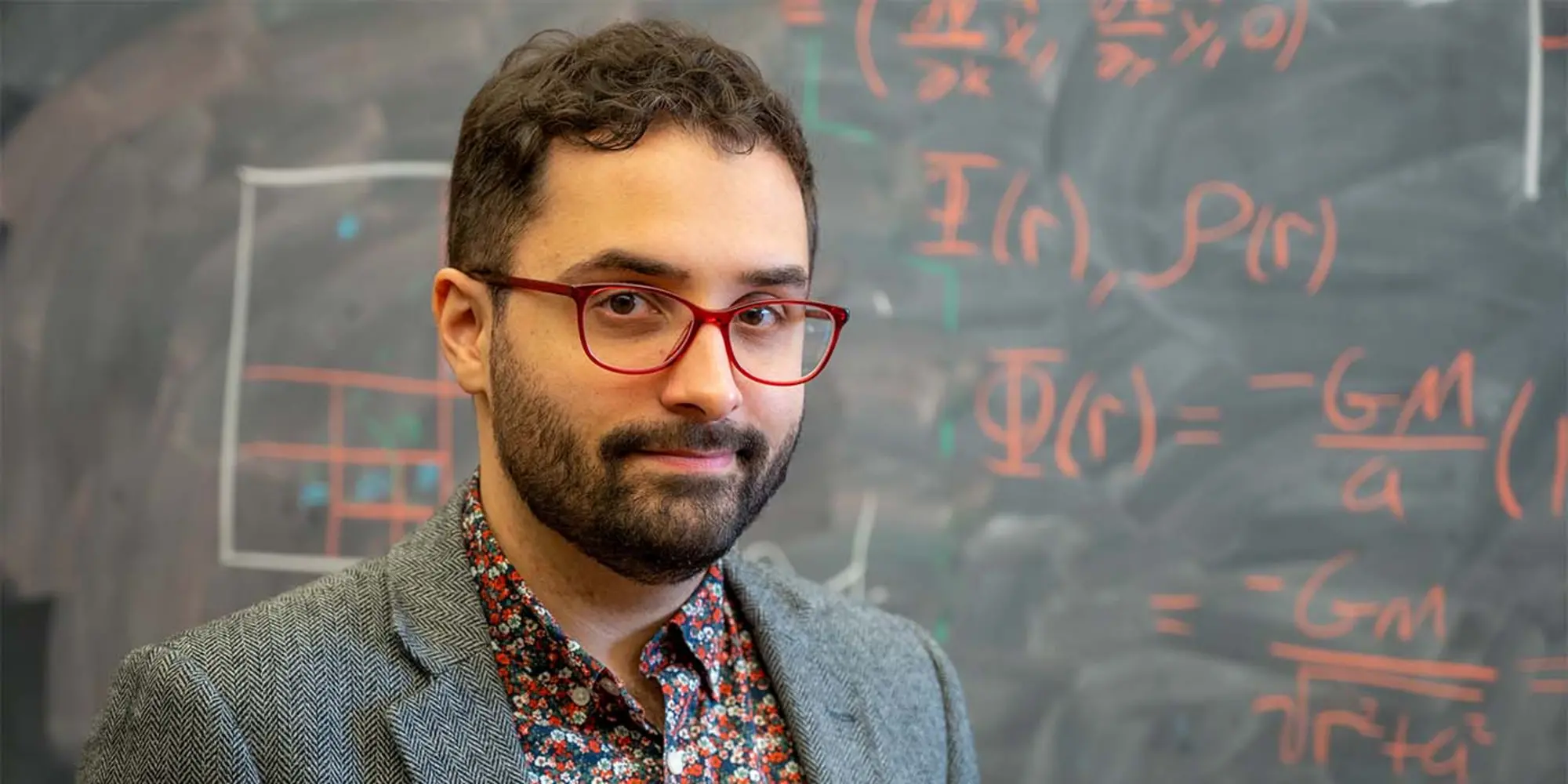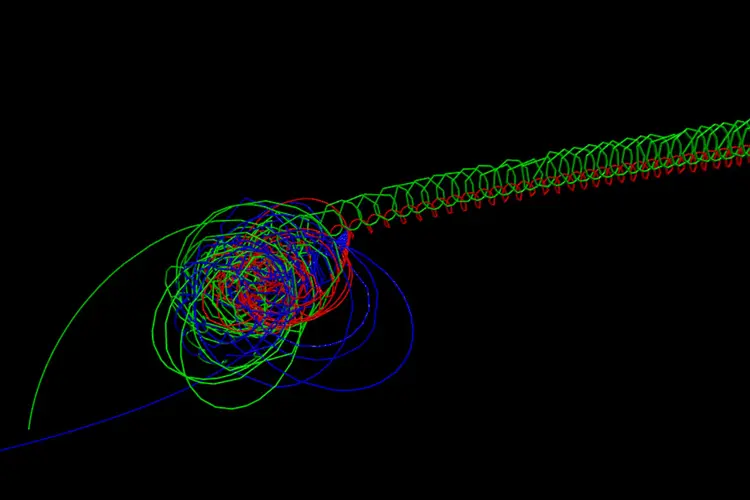
Physicist Carl Rodriguez Receives 2022 Packard Fellowship
Media Inquiries
The David and Lucile Packard Foundation has announced that Carl Rodriguez(opens in new window), an assistant professor in Carnegie Mellon University's Department of Physics(opens in new window) and member of the McWilliams Center for Cosmology(opens in new window), is one of 20 recipients of the 2022 Packard Fellowships for Science and Engineering.
The fellowships recognize innovative early-career researchers and include $875,000 to aid in each fellow's research for five years.
"Each of the Fellows in this year's class is exceptional, and we're excited to support them as they push the boundaries of discovery and innovation in their fields," said Richard Alley, chair of the Packard Fellowships for Science and Engineering Advisory Panel and 1991 Packard Fellow. "We welcome them to the community of Packard Fellows and look forward to learning from them and helping them advance the frontiers of science and engineering for the good of all of us."
Rodriguez's work focuses on gravitational waves, ripples in spacetime that were first observed by the Laser Interferometer Gravitational-Wave Observatory (LIGO) in 2015. He is particularly interested in the dynamics and evolution of stars and star clusters, and what the gravitational waves they create can reveal about stars and galaxies across cosmic time.
"Stars are not fixed on the night sky, and their movements over billions of years create some of the most exciting astronomical events, from gravitational waves to gamma ray bursts to supernovas," Rodriguez said. "The Packard Fellowship will provide our group with the freedom to develop the next generation of computational tools to explore this dynamical, high-energy frontier with unprecedented physical resolution. We're truly indebted to Carnegie Mellon's Physics Department for their support along the way."
In his work, Rodriguez uses high-performance computing, including machines at the Pittsburgh Supercomputing Center(opens in new window), to simulate the dynamics of star clusters to better understand how gravitational forces effect the evolution of binary stars and create gravitational waves.
In addition to the Packard Fellowship, Rodriguez won a 2022 Sloan Research Fellowship and a Kaufman New Investigator Award in 2020. He joined the Carnegie Mellon physics faculty in the fall of 2020 after completing an ITC Postdoctoral Fellowship at Harvard and a Pappalardo Postdoctoral Fellowship at MIT. He earned his doctoral degree from Northwestern University and his bachelor's degree from Reed College. Next year, he will join the faculty of the University of North Carolina.
The Packard Fellowships for Science and Engineering are designed to encourage innovative, blue-sky thinking by providing maximum flexibility and support to scientists and engineers early in their careers. This flexibility allows Fellows to pursue trailblazing experimental research into critical issues like COVID-19 and climate change.
"The Packard Fellows embody the foundation's commitment to science as vital to progress and cross-fertilization across academic disciplines," said Walt Reid, the Packard Foundation's vice president of environment and science. "The breakthroughs we see in the Packard Fellows community provide not just hope for the future, but also real paths forward for some of the most critical challenges we face in health care, climate change, technology and more."
Carl Rodriguez is the eighth Carnegie Mellon faculty member to be awarded a Packard Fellowship for Science and Engineering. Previous winners include:
2018: Keenan Crane
2015: Elaine Runting Shi
2014: Chris Harrison
2009: Luis von Ahn
2001: Dannie M. Durand
1994: Jessica K. Hodgins
1989: Andrew J. Gellman
— Related Content —


